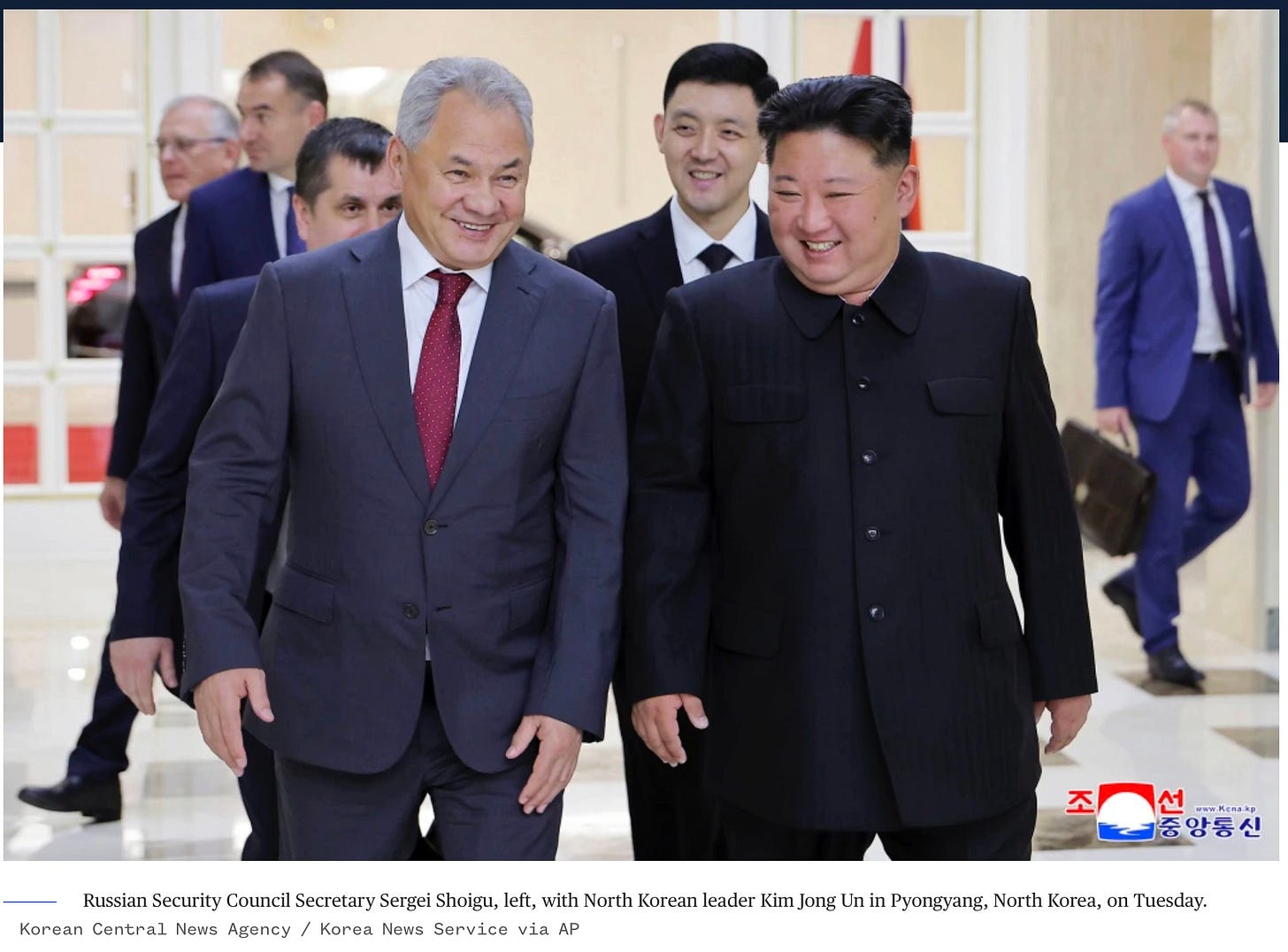Power, Paradox, and Popular Culture - NATO’s Indo-Pacific Dilemma
Hybrid warfare exposes a core paradox for NATO in the Indo-Pacific, catalyzing a strategic recalibration that integrates culture, connectivity, and credibility.
Executive Summary: French President Macron’s 2025 IISS Shangri-La remarks highlight the urgency for NATO to recalibrate its Indo-Pacific strategy by embracing cultural intelligence, reducing economic dependence on China, and confronting hybrid threats from the Russia-China-North Korea Communist triad. To maintain credibility, NATO must adopt a culturally informed approach that accounts for regional collectivist values and the strategic impact of soft power and popular culture. The need for a secondary map, considering culture and popular culture, will help guard NATO’s strategic blind spots.
Strategic Reorientation and Cultural Imperatives
While the grand pivot to the Pacific has been curtailed by the Israeli-Iranian tête-à-missile, Chinese President Xi Jinping met with the leaders of Kyrgyzstan, Tajikistan, Turkmenistan, and Uzbekistan in Astana for the second China-Central Asia Summit, roughly two weeks after the Shangri-La Dialogue. The Russian Federation and the People’s Republic of China are vying for political influence and economic control in Central Asia, furthering the necessity of a culturally adept, transnational Indo-Pacific strategy for NATO.
Hybrid warfare presents a dilemma of values for NATO, as the Alliance must defend security interests in regions where cultural and economic ties increasingly align with authoritarian powers within collectivist societies. Symbols like Labubu, K-pop, and Mr. Gudetama Egg reflect the semiotic terrain of modern conflict, where identity, connectivity, and loyalty are shaped by cultural consumption within a collectivist mindset. To remain credible in the Indo-Pacific, NATO must recalibrate its strategy to account for the powerful, often contradictory, role of culture and technology in shaping global alignment.
At the core of this strategic challenge lies a paradox: many Asian and Indo-Pacific nations seek defense and deterrence from NATO Allies and Partners, while at the same time deepening their reliance on Chinese communications infrastructure, software, robotics, Internet of Things (IoT) technologies, and economic investment. This competing imperative threatens to undermine the very security offered by the Alliance, and President Macron’s address highlights these strategic challenges.
President Macron’s keynote address at the IISS Shangri-La Dialogue in Singapore on May 30th inadvertently surfaces the influence of culture on NATO’s security and defense strategy. He challenged NATO, its Pacific partners, and China, while acknowledging his prior misjudgment that NATO’s role was limited to European affairs. President Macron sharply called attention to Russia’s aggression in Ukraine, the conflict between Israel and Hamas, the humanitarian impact on Gaza, and Iran’s nuclear enrichment program as deeply connected to China’s economic investments across Europe, and Asia.
President Macron’s address illuminates the multifaceted challenges of aligning defense strategy with the complex realities of the Indo-Pacific, where culture, economics, and politics intertwine. President Macron’s highlighted two key concepts, strategic autonomy and strategic ambiguity, that are particularly complex in the Indo-Pacific context. Within these overarching topics, he touched on the roles of autonomy, ambiguity, and credibility in security and defense.
This complex geopolitical and cultural landscape sets the stage for President Macron’s recent remarks, which are vital to NATO’s evolving role. It is difficult to demand Asian partner nations to halt purchases of lower-cost Chinese products or reject Chinese investment, especially under state-backed initiatives like Made in China 2025. Achieving economic independence will remain a challenge for several Asian nations unless U.S. and European governments subsidize tech infrastructure and communication-linked commodities.
Popular Chinese apps and digital platforms have become embedded in daily life, even though privacy is forfeited. Chinese products are not only more affordable but are often attractive, innovative, and efficient, despite quality concerns. However, this call for autonomy encounters significant friction in the Indo-Pacific, where collectivist cultural values shape national priorities differently than in the West, complicating efforts to reduce dependency on Chinese technology and investment.
Even Europe itself is affected by the affordable trend of Chinese goods, with IoT technologies such as BYD’s small electric vehicle, localized culturally from Seagull to Dolphin Surf, at a relatively cheap price point. To reduce dependence on China, European and Asian nations would need more affordable options. Otherwise, security partnerships with NATO could remain compromised by infrastructure built and maintained by Chinese companies. Confronting these layered challenges, NATO faces a critical moment in redefining its strategy for the Indo-Pacific.
President Macron’s artful argument, highlighting France’s use of nuclear power, underscored that national control over energy resources is essential for sovereignty. This concept may resonate with Western audiences that value individualism but is less compelling for collectivist-oriented Asian nations. This divergence creates normative friction that must be addressed through gray-zone tactics, strategic empathy by stepping into a collectivist worldview, long-term investment, and trust-building measures to endure the uncertainty presented by hybrid warfare.
Strategic ambiguity, another pillar of President Macron’s remarks, involves withholding clear red lines to maintain uncertainty with adversaries. The first rule of cards: never show your full hand. For instance, he pointed to Germany and the U.K.’s 2024 refusal to send troops to Ukraine. While meant to de-escalate nuclear tensions, this move inadvertently assured Moscow that Ukraine would not receive soldiers as military aid. President Macron’s reference to this moment, based on his suggestion to keep it as a potential move, raises doubts about NATO’s credibility and strategic wargaming if it is unwilling to use force even to defend Europe.
President Macron’s recognizes that ongoing conflicts in Ukraine, Gaza, Israel, and Yemen are all linked to Asia. From France’s vantage point, this marks a shift in NATO’s self-conception. His statement that NATO should have a presence in Asia could mark a major evolution in strategic thinking.
Perhaps this shift in interpreting hybrid warfare will garner a greater appreciation for the influence of culture on policy and strategy. NATO should embrace the growing impact of cultural phenomena, from viral memes to entertainment trends, on identity and allegiance in ways that affect security dynamics. NATO’s ability to operationalize such popular culture dynamics as part of its Indo-Pacific security strategy can strengthen its deterrence posture.
In this context, popular culture and collective mentality have security implications, such as the strength of India’s relationship with Russia or Russia’s relationship with China. From a Russian model’s iconic rise for Sang-culture in China to reruns of Bollywood on Russian TV—these are not trivial cultural trends.
Labubu, a Chinese cultural phenomenon, symbolizes the global popularity of Chinese cult culture in the form of a quirky, troll-like doll with humorously good intentions gone awry. Meanwhile, Chinese consumers enthusiastically embrace Japanese Mr. Gudetama Egg emojis to express negative emotions often censored by China’s ubiquitous surveillance techniques.
The cultural trend of K-pop thrives across the U.K., U.S., Asia, and the Pacific. In 2025, a young North Korean defector, Yu Hyuk, will even appear as part of 1Verse stateside. South Korean TV shows like Squid Games are popular in China, as well as in the U.S. and Europe. Such examples of cultural diffusion illustrate how entertainment and identity play an integral role in shaping public opinion and Alliance cohesion.
While the world remains divided by territorial borders, today’s communication flows across abstract digital codes shaped by foreign languages, shared cultures, and virtual interaction. Globalization, the internet, and artificial intelligence (AI) accelerate these cultural linkages, generating a secondary cultural map that should inform strategic doctrine.
In Asia, hybrid warfare demands a modernized approach because the battlespace is no longer just physical, but fundamentally conceptual and cross-cultural. The divergence in governance principles and acts of state subversion require creative thinking in defense. This is where cultural intelligence comes into play.
The ideological foundations of the Communist Triad (Russia, North Korea, and China) tap into the collectivist mindset shared by many Asian, Central Asian, and Pacific Islander cultures. In contrast, the NATO Allies are largely individualistic, which complicates attempts to form deeper strategic alignment in the Indo-Pacific. This cultural divergence must be addressed to broadly deter conflict with China. These cultural forces underpin broader ideological frameworks that further complicate NATO’s efforts.
President Macron vocally pressured China to rein in North Korea’s nuclear threat. Furthermore, he called on China to leverage its relationships with both North Korea and Russia to disengage from military cooperation in Ukraine. But to do so, China would have to reduce its illicit trade with North Korea and jeopardize its energy cooperation with Russia—moves that could strain the bond binding the Communist Triad. Certainly, it would derail financial revenue streams and compromise energy security, making those unlikely compromises.
For countries threatened by North Korean missile launches, Russian aggression, or disadvantaged by the Belt and Road Initiative, Chinese products and services remain attractive to the people despite long-term political concerns. When combined with streamlined Chinese-run services and platforms, these trends shape cultural and social dynamics that influence partner nations’ security behavior. This paradox plays out in the everyday lives of Indo-Pacific nations, where economic realities often clash with security concerns.
The collectivist mentality for coexistence among many Asian cultures enables the political ideological resonation with propaganda from Russian, North Korean, and Chinese governments. Moreover, the transnational cultural and ethnic bonds connecting Eurasians, Pacific Islanders, and Asian nations illuminate the necessity for a culturally attuned messaging component to a NATO Indo-Pacific security-defense strategy. This will enhance NATO’s efforts to deter conflict with China while also encouraging partner relationships, despite the paradoxical entanglements in the region.
The Path Forward for NATO
NATO was established for European defense and deterrence, but globalization and hybrid warfare have blurred the line between European and Indo-Pacific security. France, with its overseas territories in Asia, exemplifies this shift. As President Macron urged, European nations must take responsibility for their own defense and stop relying so heavily on China.
Strategic ambiguity is especially valuable in the Indo-Pacific, where cultural and ideological differences complicate diplomatic and economic efforts by NATO nations. Russia, China, and North Korea share values deeper than politics, rooted in ethnic and cultural foundations that reinforce collectivist governance. Even as the Chinese and Russian governments leverage capitalism, their ideological roots remain intact.
Recent revelations about North Korean workers using AI to obfuscate faces to land jobs in European tech firms show how hybrid threats exploit both digital and cultural blind spots. Globalization, AI, and popular culture have collapsed old categories. NATO’s interoperability in the Indo-Pacific, especially amidst China’s military ramp-up, is imperative. Defense, culture, technology, and commerce now overlap at a rapid pace. Not necessarily through expansion, but through redefinition.
NATO must recalibrate its role in Asia, especially as cyber threats, espionage, and ideological influence expand. While some advocate for a redefined and expanded NATO mission, at minimum, the Alliance must remain faithful to its current principles of defending democracy and acknowledge that its credibility is at stake.
The security threat posed by the Communist Triad across the Pacific and Europe is clear. But crafting an effective deterrence strategy requires culturally attuned messaging, application of AI, economic alternatives, and acknowledgment of conflicting governance models. Military force and economic sanctions are effective, but addressing deeper factors of cultural identity and human connection can further NATO policy for deterrence and seek the ultimate goal to meaningfully contribute to peace and security in the Indo-Pacific.
These entanglements, where Asian nations ask for Western security while embedding Chinese technologies into their core infrastructure, make it difficult to achieve the strategic autonomy and ambiguity for which President Macron calls. Addressing this paradox will require not only military planning and economic incentives from the NATO Allies but also embracing and operationalizing cultural intelligence strategies.
NATO’s future credibility and deterrence in the Indo-Pacific may hinge on its ability to help resolve these contradictions through a strategy that is as culturally nuanced as it is militarily robust.
~E










